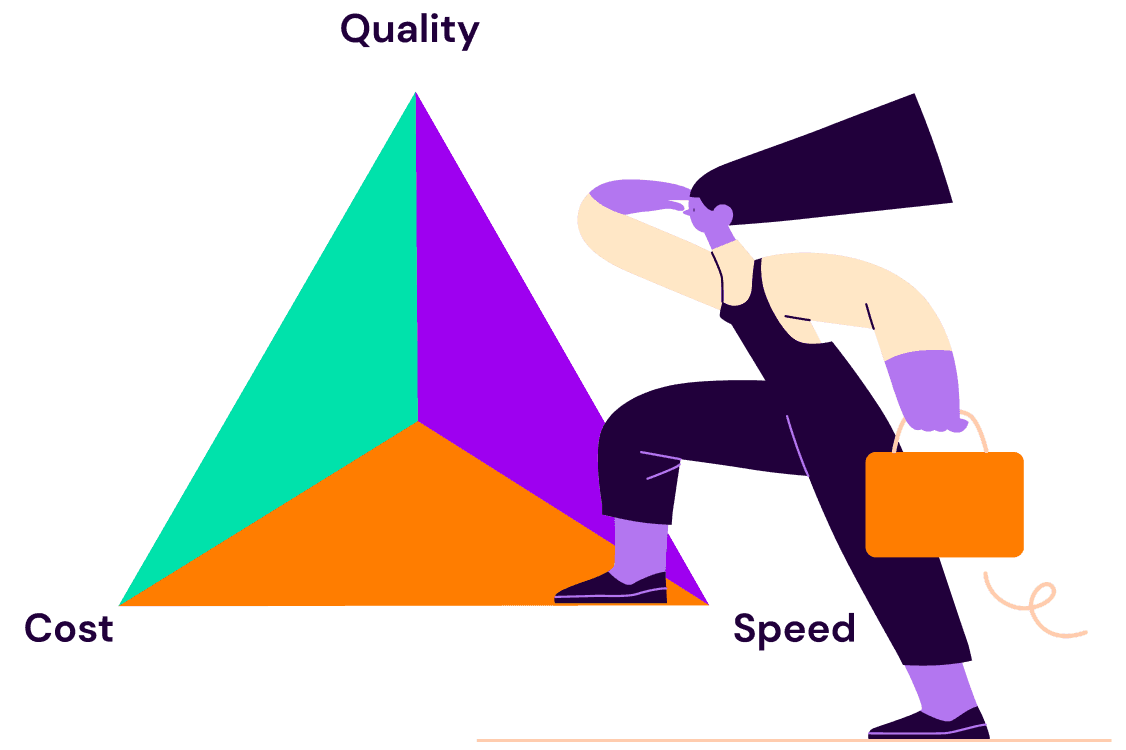
Back to blogs
Let's talk about the elephant in the room. A lot of organizations have made investments in diversity, equity, and inclusion (DEI) efforts in the last few years, including adding employee resource groups (ERGs), hiring DEI strategists, increasing budgets, and publicly posting and measuring their progress towards building a more diverse workplace. These measures are critically important to building organizations that foster belonging—and are long overdue.
At the same time, DEI strategies often overemphasize tactics above more complex, cross-functional transformation. While this may get you a few quick wins, it fails to create lasting change and leaves many DEI strategists wondering, “Why didn’t my DEI efforts stick?”
Why did my DEI efforts fail?
So, what are the top reasons DEI efforts fall flat?
Leadership lacks commitment
Efforts are driven by one group or individual
Unrealistic goals
Actions aren’t consistent over time
For DEI efforts to stick, it’s imperative for companies to map the overall DEI vision to business operations and move from tracking DEI activities to tracking DEI outcomes.
Companies that overlook DEI will lose out on talent. McKinsey and LeanIn.org’s 2022 Women in the Workplace report found that “women are more than 1.5 times as likely as men at their level to have left a previous job because they wanted to work for a company that was more committed to DEI.”
Making DEI efforts stick
Tackling three key issues will help you vertically integrate DEI work across the organization and make your DEI efforts stick.
🐘 1. Embrace tough conversations
We must start by acknowledging that everyone comes to the table with various levels of awareness around racism, sexism, and other forms of systemic oppression for underrepresented communities. To counter this, start by telling the history. Create space for difficult topics, lead with grace, and adopt a learner’s mindset.
When we collectively learn together, we start to understand the why behind the work and can commit to tackle bias together. If an individual does not understand how certain groups are marginalized, it will be harder to make the heart connection and gain new champions for DEI initiatives across the organization.
When we start with the why, we ignite a fire inside of our people to move them from empathy towards compassion.
This should start with the leadership team; DEI work is imperative and personal. Vulnerability and transparency are traits to encourage from leadership and the team at large.

“When we talk about people from underrepresented groups, these are people with families, dreams, and aspirations that are working against barriers that others have the privilege to ignore.”
—Christina Tymony, Sr. DEIB Strategy & Enablement Manager, SeekOut
Unraveling bias together and reeducating moves DEI work forward towards genuine action.

🐘 2. Infuse DEI into your company’s DNA
DEI work is often divorced from the larger People strategy, but should be woven in. Everyone—from HR business partners to compensation teams—should be operating from a lens of equity.
For DEI work to succeed, DEI cannot be siloed into a single program, person, or team. Enmesh DEI into company values, every part of the employee experience, and the organizational people strategy.

Questions to ask:
Are we screening candidates for inclusive behaviors?
Are we evaluating leaders against their ability to create, develop, and retain diverse teams?
Are we looking to see if each demographic is advancing at an equitable rate?
Is the company culture welcoming, inclusive, and rooted in equity?
Do we recognize the work of the DEI champions within our organization?
Invest in tools and technology to further support DEI work. At SeekOut, our platform enables HR and talent acquisition teams to proactively build inclusive talent pools and support career growth across employees. Ensure tools are used across teams and embedded into the team’s everyday processes.
🐘 3. Make DEI a business objective
DEI is often treated as an extracurricular activity; something that can be deprioritized or pushed off until next year. If the leadership level views the work as informative but has not tied the vision into operational processes, the work will fall short of lasting change. DEI must be a part of how we evaluate leaders and their effectiveness.
A From Day One article highlights how multi-faceted the work of a Chief Diversity Office is.

“We don’t own much. You’re being held responsible for diverse talent coming in the organization, but you don’t own recruiting. You’re being held responsible for developing underrepresented talent or women being promoted, but you don’t own L&D, you don’t own talent management. What works is when the leaders who run P&Ls own responsibility for DEI. That’s a game changer.”
—Channing Martin SVP, Chief Diversity & Social Impact Officer, IPG
As with business objectives that affect the bottom-line, every departmental leader must be an active DEI participant and celebrate the work of other DEI champions across the organization. This level of accountability and support generates palpable change over lip service. Leadership must provide more than the vision and be held accountable for operational change.

Along with bringing leaders into the fold, make sure the organization is measuring the right things. Every company is on its own DEI journey and will be at different stages of tracking metrics. If you are not capturing outcomes yet, start by measuring activities, but have a plan to move to measuring outcomes over time.
Not sure where to start? Use the metrics below to guide your planning and set realistic goals that are backed by the actions and commitment of leadership.

Key takeaways
When companies address the DEI elephants in the room, it’s a step forward to becoming more diverse, equitable, and inclusive places to work. Embrace the tough conversations; if we do not dig into the history and the bias, we cannot move towards genuine action. This is crucial to getting teams involved and invested in the work.
If we do not infuse DEI into company DNA, the organization will complete activities but fail to generate outcomes. Every person within the organization needs to play their role. And lastly, positioning DEI as a business objective will create space for tough conversations and a culture that prioritizes the work.
Want to learn more? Watch the full on-demand video about making your DEI efforts stick or view our DEI Recruiting Solution Buyer’s Guide.
See us in action
Learn how SeekOut unifies people data to help organizations reach their talent goals
Request a demo




